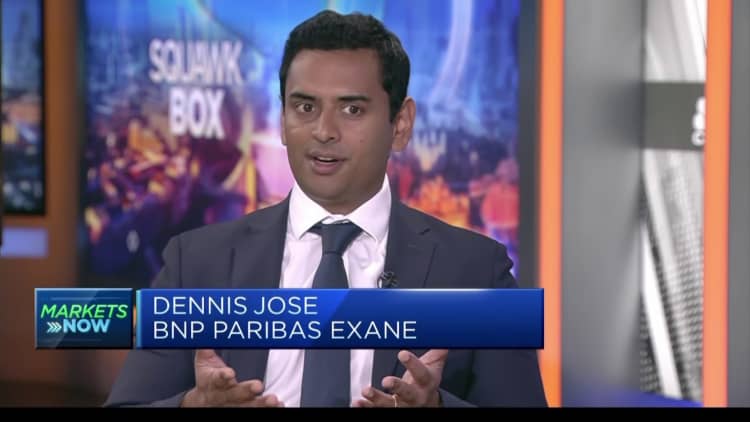Ascentxmedia | E+ | Getty Images
With the Federal Reserve poised to start cutting interest rates, experts are divided on what’s ahead for the U.S. economy.
While some worry the economy could be in for a broad decline, or recession, others hope the central bank can effectively avoid a downturn and execute a “soft landing.”
For people who are in or near retirement, the stakes are particularly high when it comes to what happens next.
A recession or sudden market decline could upend the size of their retirement nest egg, planned retirement date or both.
Everyone approaching retirement should be asking themselves, “What’s my Plan B?” said Anne Lester, author of “Your Best Financial Life” and former head of retirement solutions at JPMorgan.
“Now is a great time to build some scenarios and start asking yourself that question, ‘What would I do?'” Lester said. “If you have a plan, you’re much less likely to panic and do something unwise.”
Research shows people who are approaching retirement are much more likely to panic when a downturn sets in, according to David Blanchett, managing director and head of retirement research at PGIM DC Solutions.
“Being proactive now is especially viable for older Americans for whom retirement is all of a sudden becoming very real,” Blanchett said.
To test your current retirement plan, asking some questions can help.
Is my portfolio allocated where it should be?
For retirees and near-retirees, a market decline can prompt what’s known as sequence of returns risk — where poor investment returns negatively impact how long retirement savings may last.
“If you are near the end of your career or just starting retirement and a recession hits, then you have much less time than you’d like for your portfolio to recover,” said Emerson Sprick, associate director of the Bipartisan Policy Center’s economic policy program.
A market selloff can happen without the economy going into a recession, Lester said. And the economy can go into a recession without meaningful stock market declines.
Consequently, it helps to always be prepared for the markets — and your retirement nest egg — to take an unexpected big hit.
The good news is that it’s rare for the markets to have a big correction — defined as a decline of 10% or more — and keep sinking, Lester said.
“It is very unlikely that we rerun 1929 again, where you have five or seven years of very bad returns in a row,” Lester said.
More from Personal Finance:
How investors can prepare for lower interest…
Click Here to Read the Full Original Article at Top News and Analysis (pro)…


